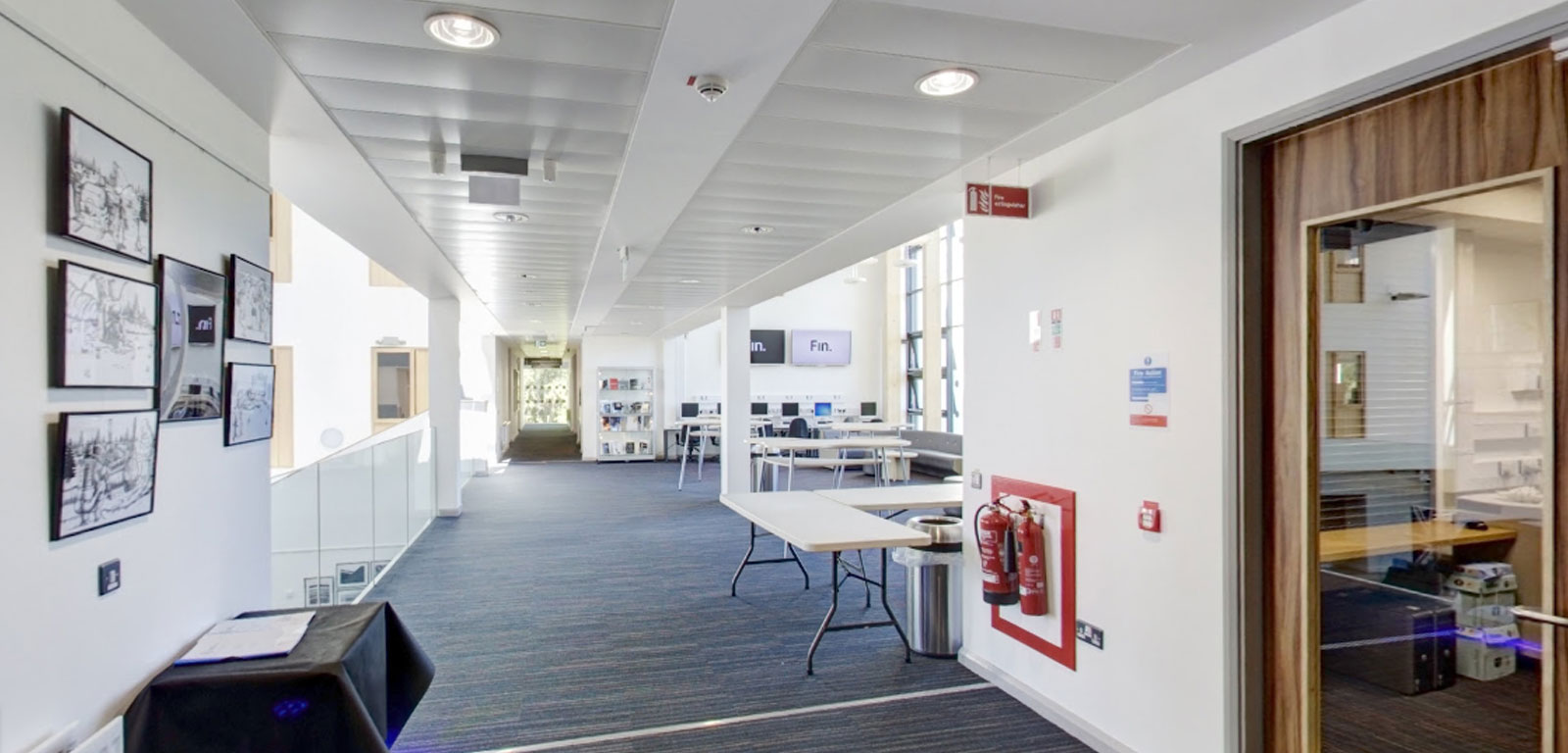📖Program Curriculum
Year: 1
Introductory accounting provides the student with an understanding of the concepts underpinning financial reporting for sole traders and partnerships.
Principles of Financial Accounting
Year: 1
Principles of Financial Accounting provides the student with an introduction to the concepts underpinning corporate financial reporting for single companies and simple groups of companies. This provides students with the foundations required for further study in Financial Accounting module.
Principles of Management Accounting
Year: 1
This module provides students with an introduction to the principles of management accounting. It examines the role of the management accountant within an organisation and how management accounting information contributes to making judgements and decisions. The module focuses primarily on the theory and practice of cost accounting and introduces students to various cost accounting concepts, techniques and processes. It provides a firm foundation for further study in the area of management accounting.
Academic, Professional and Managerial Awareness
Year: 1
This module provides students with an opportunity to consider, reflect on, and develop key skills that will provide a strong basis for successful study in higher education and in their future professional life. It provides opportunities to consider personal strengths and learning styles, and develop strategies to maximise their learning potential.
Information Skills for Business
Year: 1
This module provides the student with a solid understanding of information management principles, applications and value in modern organisations. Particular attention is awarded to technological tools and business process improvement techniques. The opportunity to construct a simple data analytics dashboard system is provided. On completion of the module students will be equipped with the skills necessary to join the workforce having an appreciation of the own personal information management skills and an understanding of the roles/skills required in a sustainable learning organisation.
Business and the Economy
Year: 1
This module will provide an introduction to the fundamental concepts and applications of economics as they affect individuals, firms and governments, as well as the policy decisions taken in industry, commerce, and local government. An emphasis will be placed on the application of economics to the world around us.
Year two
Management Accounting
Year: 2
Having completed this module the student will be able to: understand the role of the management accountant and how this contributes to the achievement of organisational objectives; understand the role of modern management accounting practices which enable organisations to develop and assess performance; and apply appropriate management decision tools to a specified range of scenarios.
Skills for Work
Year: 2
Understanding the diverse career options within Accounting and Finance is essential if students are to understand and develop the skills and attributes that employers across different markets are seeking. This module aims to engage students in their own employability development as well as aid their understanding of what recruiting employers look for and in particular why they look for specific attributes.
Risk Management
Year: 2
This module introduces the student to the conceptual and theoretical fundamentals of business risk management combined with the processes surrounding risk management in both the private and public sector organisations. It identifies the skills that a professional services accountant must have and how best to utilise those skills in today's challenging business environment.
Law for Accountants
Year: 2
This module introduces students to basic legal structures, principles and concepts relevant to business and the business environment in the United Kingdom (with a particular emphasis on Northern Ireland). It also enables them to acquire certain skills, such as those of instant recall, analysis, argumentation and articulation, which will prove useful in their work as business professionals.
Year three
Personal and Business Finance
Year: 3
This module introduces students to finance decision making for individuals and small to medium sized national companies. Within the personal finance part of the course students will study the financial lifecycle, the financial plan and the main personal finance decisions (debt, savings, investments, insurance, mortgages and pensions). Within the business finance element of the module students will study the role of business finance, ethics in financial decision making, the influence of the environment on financial decision-making, the time value of money, capital investment appraisal, working capital management and sources of short and medium-term finance, and cost of capital.
Financial Accounting
Year: 3
Financial accounting provides the student with an understanding of the concepts underpinning corporate financial reporting for single companies and groups of companies. The role of financial accounting regulation, particularly International Financial Reporting Standards is examined and students are provided with the skills to apply these to practical examples.
Governance, Risk and Ethics
Year: 3
The module informs and equips students to effectively respond to the governance challenges organisations face today. The module aims to investigate the key components for securing the highest standards of effective corporate governance.
Audit and Assurance
Year: 3
This module is optional
This module introduces the student to the conceptual and theoretical fundamentals of auditing combined with the practical application of auditing principles and the issues encountered in a financial reporting and audit environment. It identifies the skills that a professional auditor must have and how best to utilise those skills in today's challenging business environment.
Organisation Design
Year: 3
This module is optional
This module is concerned with exploring why differences in structure and design exist across organisations. It considers ways of describing, analysing, classifying and differentiating organisations and the factors that cause this differentiation.
Managing and Developing People
Year: 3
This module is optional
This module explores the changing nature of HRM and people management and development in organisation. The impact of changes within the economy, in demographics, in legislation and advances in technology will be considered. Taking a broadly employee life-cycle approach the module covers the core functional areas of HRM to include recruitment and selection; equality, diversity and inclusion; learning and development in organisations; performance management; pay and reward; the employment relationship and employee engagement; and employee health and well-being: the topics are presented via a HRM lens but the importance of their understanding for aspiring line managers is emphasised.
Year four
Advanced Management Accounting
Year: 4
An important role of management accounting is to present accounting information to facilitate decision making, planning, control and performance measurement. The module will develop further the students' appreciation of management accounting. This will involve the in-depth study and critical appraisal of advanced practices and theories of the discipline.
Corporate Financial Reporting
Year: 4
Corporate Financial Reporting provides the student with an understanding of both accounting theory and the practical application of international financial reporting standards.
Public Sector Accounting
Year: 4
This module is optional
Public sector accounting analyses organisational structures and management control in central government, local authorities and National Health Service. This module will introduce students to the financial accounting and management accounting techniques and methods within public sector. The module also provides an insight into the nature of recent managerial and accounting reforms within public sector organisations.
Taxation
Year: 4
This module is optional
A knowledge of taxation is essential to students intending to pursue a career in accounting and is an essential part of most financial and economic decision making. This module provides a fundamental undertaking of the main aspects of the UK tax system covering personal, business taxation, corporation tax, inheritance tax and capital gains tax as well as an understanding of the administration of the self-assessment system.
Year five
Advanced Financial Management
Year: 5
This module is optional
This module examines some of the fundamental concepts underpinning managerial finance, including agency theory, EMH, theories on capital structure and dividend policy. The module focuses on financial management decision-making in large companies that interact with the capital markets and have an international presence.
Strategic Business Planning
Year: 5
This module is optional
The module introduces the concept of strategic business planning. With the dynamic business environment and the requirement for enterprise development to be linked to strategic management architecture, there is a need to enhance the level of understanding and competency in business planning.
Forensic Accounting
Year: 5
This module is optional
This module allows students to combine their understanding of accounting, finance and governance structures, with the evidence gathering, investigative techniques, and report writing skills necessary to be a forensic accountant.
Quality Management
Year: 5
This module is optional
Total Quality Management is a holistic approach to managing organisations, which focuses on continual improvement in all areas, achieved by the active involvement and participation of all employees. At its core are the processes involving customer/supplier chains, supported by the 'hard' elements of Teams, Systems, and Tools, interwoven with the 'soft' elements of Culture, Commitment, and Communication, all combined into an effective whole.
Supply Chain Management
Year: 5
This module is optional
This module should assist students in the analysis of contemporary developments affecting the role of supply chain management and should enable them to develop and manage supply chain strategies to meet corporate objectives. Topics to be covered include the evolution of purchasing and supply management; supply chain strategies and achieving strategic fit; supply chain drivers; e-commerce and the supply chain; outsourcing; supply chain relationships and supply chain dynamics.
Show less🏠 Accommodation
You will need to book the accommodation after you have been accepted.
You can choose to live on campus or off campus in private accommodation.
How to book:
- Make a booking online after you have been accepted (in this case please let us know your choice when you apply).
- Register when you arrive - its not possible to reserve a room before arriving. You can arrive a few days before and book it
💰 Fees
Application Fee:
237 RMB
Tuition fee:
15,840 GBP per year
63,360 GBP in total
❓✅❌ Entry Requirements
The minimum age is 18.
English fluency is required.
You need to be either:
- A native English speaker
- Studied a degree in English before
- Can demonstrate a high level of English
- Having an English certificate such as IELTS level 6 or TOEFL 95 and above is an advantage.
Minimum education level: High School.
The program is competitive, you need to have a high grades of Average A, 70%, or a high GPA.
All students from all countries are eligible to apply to this program.
Or see the list of programs you are eligible for here .
📬 Admissions Process
3 Steps to Apply to a University
Please choose the programs here , "You are advised to select 2-3 programs to increase your chances of getting accepted.
Required Documents:
- Passport
- Graduation certificate
- Passport size photo
- Official transcript
- Personal statement
- English certificate (You can take the English test online)
- Guarantor letter
Preparing documents:
You can start your application now and send the application documents during your application. Some documents you can send later if you don’t have them right away. Some more info about preparing application documents is here
Application process:
Applying Online is simple in just a few steps. More information is available here.
The first steps are to choose the programs, pay the application fee and upload the application documents.
Once submitted to Global Admissions, we will review your application within 2-3 days and proceed to the university or ask you for further clarification
After it has been processed to the university you will receive your unique application ID from each university.
The university may contact you directly for further questions.
We will then follow up each week with the university for updates. As soon as there is any update we will let you know. If you have made other plans, decide to withdraw / change address at any time please let us know.
After you have been accepted you will receive your admissions letter electronically and asked to pay the non-refundable deposit to the university.
Once you have paid the deposit the university will issue you the admissions letter and visa form to your home country.
Show less❓ Have a Question?
There are no similar questions. Please send us your question below














